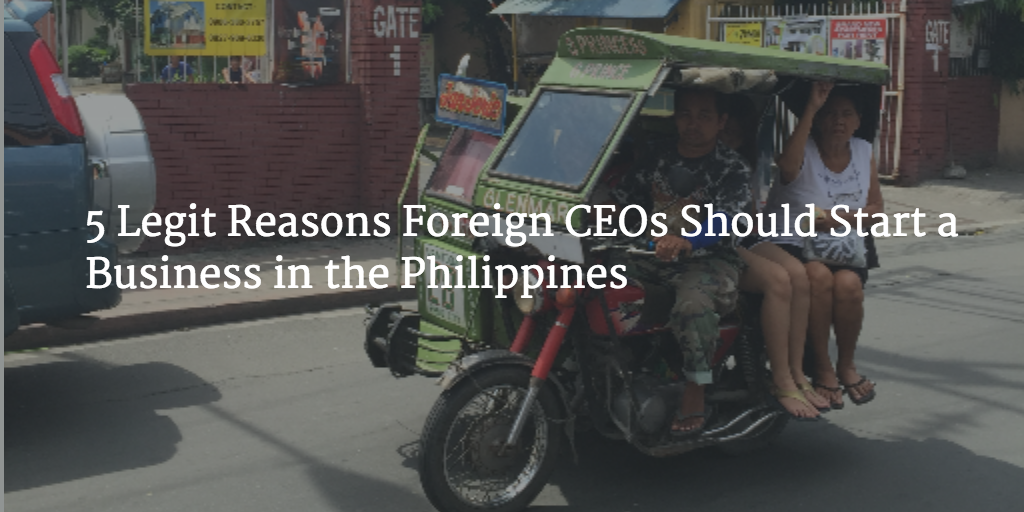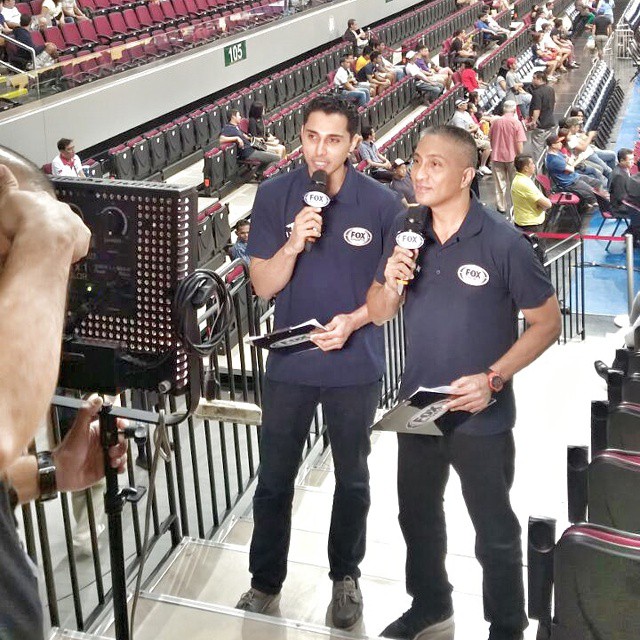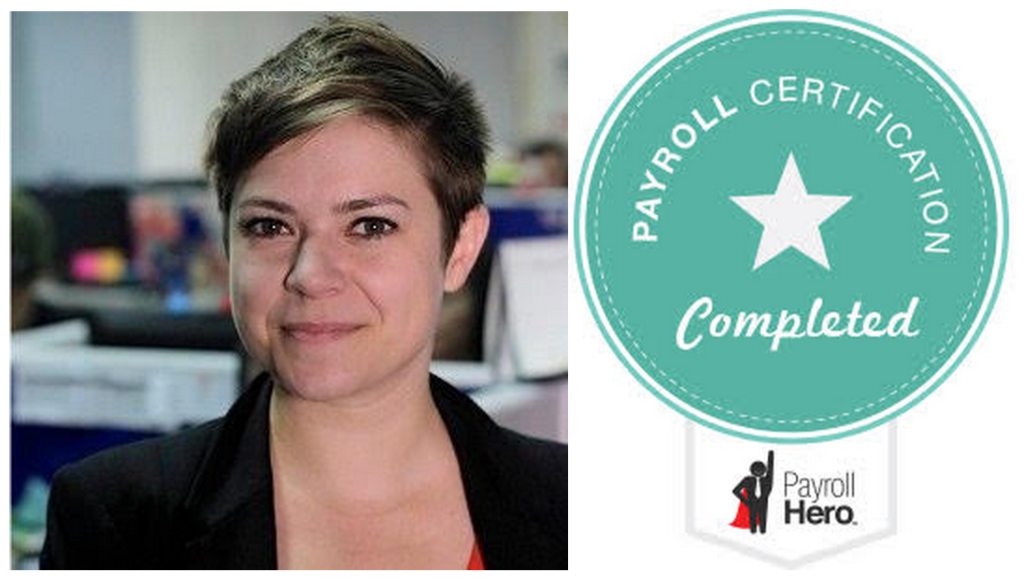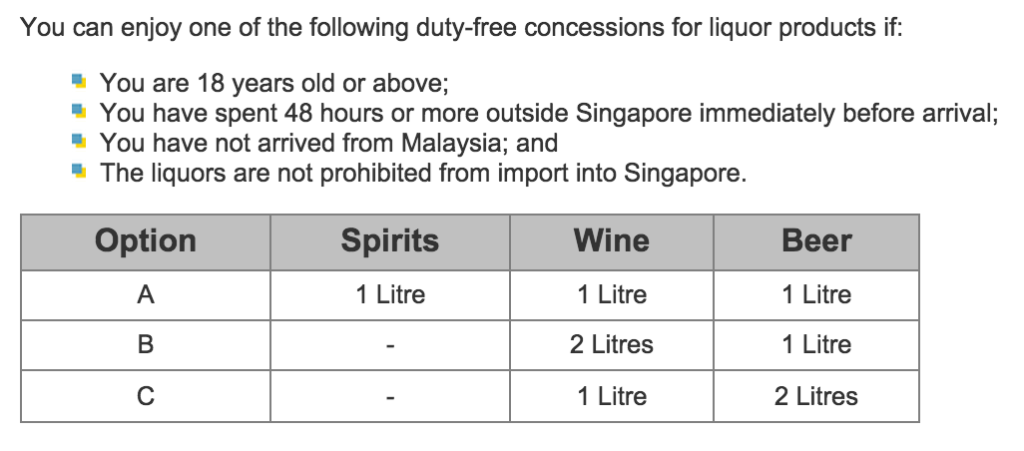 Two weeks ago, Presidential Spokesperson Edwin Lacierda announced that the Philippines jumped five notches higher in the World Economic Forum (WEF) Global Competitiveness Report for 2015. Lacierda attributed the economic boost to innovation, institutions, and macroeconomic environment.
Two weeks ago, Presidential Spokesperson Edwin Lacierda announced that the Philippines jumped five notches higher in the World Economic Forum (WEF) Global Competitiveness Report for 2015. Lacierda attributed the economic boost to innovation, institutions, and macroeconomic environment.
Meanwhile, a Bloomberg report earlier this year indicated that the country’s economy in 2014 grew by 6.1 percent, making it the world’s second fastest growing economy, next to China’s who went up by 7 percent. These recent figures are proof that the country has tremendous potential for both foreign and local businesses who are looking into opening or expanding their operations.
In 2013, we asked David Elefant, owner of Dayanan Business Consultancy to share his thoughts about doing business in the Philippines. His contribution was a gem for foreign CEOs who wanted to do business in the country but found themselves at ground zero.
Why Choose the Philippines for Your Next Business Venture
This year, we compile a solid list of reasons why foreign CEOs should choose the Philippines for their next business venture!
Business registration is a breeze
Horror stories of bureaucratic red tape are fortunately dwindling in number! For non-locals, registration approval roughly takes fifteen (15) working days from acceptance of your documents. We suggest you bookmark this helpful list of requirements before you march your way into the appropriate offices. Or you can enlist the help of experienced business consultancy firms.
Locals speak excellent business English
In 2012, the Philippines was the world’s top country in business English proficiency. This is a result of reinforcing English as medium of instruction for both public and private schools in the the country. Furthermore, the newly-implemented Enhanced K to 12 Basic Education Program (K-12 Program) underlines the country’s commitment in advancing the nation’s education system. Additionally, the country’s literacy rate is currently at 97.5 percent.
A liberalized, trade-oriented economy
The Philippines allows for a Build-Operate-Transfer (BOT) investment scheme which most of its neighboring countries emulate. This guide by the Philippine Embassy in Netherlands explains the BOT scheme succinctly:
Government corporations are being privatized and the banking, insurance, shipping telecommunications and power industries have been deregulated. Incentive packages include the corporate income tax, reduced to a current 32%, with companies in the Special Economic Zones are subject to only 5% overall tax rates. Multinationals looking for regional headquarters are entitled to incentives such as tax exemptions and tax and duty-free importation of specific equipment and materials.
Young, educated, and globally competitive workforce
While Japan, Germany, and Italy are worried about their aging working class, the Philippines’ young workforce sustains the country’s attractiveness to foreign investors.
National Competitiveness Council private sector co-chair Guillermo M. Luz considers this as a sign that the country will become, in his words, a very good investment site well beyond 2030. On the other hand, neighboring Asian countries such as China, South Korea, and Hong Kong, this report noted, will soon face a greying workforce which could potentially slow down the nations’ economic growth.
Last August, Oliver Segovia also pointed out in this Harvard Business Review article that a profound shift in the mindset of the younger workforce has pushed the country into steady economic growth.
“Traditionally, business process outsourcing was associated with high-volume, low-price work. Today, the mainstream appeal of Silicon Valley is turning young Filipino workers who might have been satisfied with a call center job a decade ago into a creative and entrepreneurial class seeking a deeper connection with innovation-driven and mission-focused companies. Working for a venture-backed start-up is the new status symbol,” Segovia wrote. “As a startup founder, my biggest competitors in the talent market are no longer the local family conglomerates. They’re tech companies from the U.S., Germany, Singapore, and Japan coming to the Philippines.”
Low costs of living
Data collected between July 1, 2013 to Jan. 2, 2015 revealed that the Philippines is one of the world’s cheapest countries to live in. The living costs for the countries surveyed were measured against that of New York City, touted as one of the most expensive in the world.
After Manila was recently considered as a costlier city for expats by Mercer’s 2015 Cost of Living Survey, several foreign entrepreneurs have opened operations outside the nation’s capital.
Here’s an excerpt from a Tech in Asia article:
While Makati City, which is home to startup cluster Area 55, was identified as the most economically competitive region in the Philippines, cities outside Metro Manila had a very good showing. The CMCI ranked their economic competitiveness according to three equally weighted pillars, including economic dynamism, government efficiency, and infrastructure.
By these measures, five of the cities in the top ten most economically competitive were located outside the National Capital Region. These were Cagayan de Oro City in Northern Mindanao, Naga City in Bicol, Davao City in Davao, Iloilo City in Western Visayas, and Cebu City in Central Visayas.
Warm, Hospitable Locals
The country is globally known for its abundant supply of sun, sand, and sea! The warmth of the tropics also extends to its people who are equally open and hospitable to foreigners! As one of the happiest nations worldwide, foreign CEOs will find themselves working with accommodating, resilient, and endearingly kind locals. And who wouldn’t want a happy workforce? Happy employees are in fact more productive!
In conclusion, the Philippines has a perfect balance of happy, hardworking locals, low costs of living, and a competitive economy. All these elements can work to your favor as a foreign CEO who is looking into starting a business in the country.
Still curious about what it’s like to set up a business in the Philippines? Get in touch with the PayrollHero team for more insider info.
And if you’re looking into setting up a restaurant in the Philippines, this FREE starter kit was put together to give you high level information about the Philippines, share some thoughts from restaurant owners, and present relevant statistics from our market research.
You’re welcome!

 2. What are you top 5 favourite restaurants and why?
2. What are you top 5 favourite restaurants and why?





 To give you an idea of costs from our three offices. A 750ML bottle of Absolute Vodka costs $19.99 in the Manila, C$24.75 in Whistler and S$49.50 in Singapore.
To give you an idea of costs from our three offices. A 750ML bottle of Absolute Vodka costs $19.99 in the Manila, C$24.75 in Whistler and S$49.50 in Singapore.